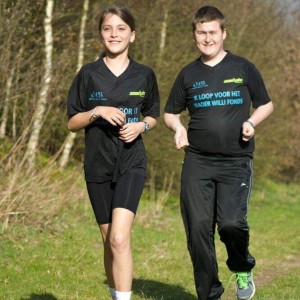Is there a place in the FPWR community for parents of adult children with PWS? I have frequently been asked if the work of the Foundation for Prader-Willi Research is only for ‘young families’ and if there is a place in the FPWR community for parents of adult children with PWS. My emphatic response is YES, there is a place at FPWR for families of ALL ages, and this is why....
The mission of FPWR is to eliminate the challenges of PWS through the advancement of research. This is a mission that families of ALL ages can relate to. FPWR is working to gain a better understanding of this disease so we can drive research forward, guide and improve standards of care, expedite the completion of clinical trials and ultimately find treatments for PWS. These outcomes will ultimately benefit EVERY person with PWS, regardless of age.FPWR is funding research that will benefit everyone with PWS and is working actively with stakeholders (industry, the FDA, university researchers and patients) to move as many new therapies through clinical trials, and into the hands of patients, as possible. Ongoing clinical trials currently span the ages from 3 years old through adulthood. Beloranib and RM-493, two drugs currently in clinical trials, are currently being investigated for adolescents and adults, while oxytocin, which has been previously investigated in infants and adults, is now being studied in children ages 5 - 8 years. The ability of medical devices to reduce appetite and improve behavior is also be tested in adults with PWS: vagus nerve stimulation and transcranial direct current stimulation.
Improving mental wellness in adults with PWS is a priority of our organization. In 2015, FPWR hosted the PWS Mental Health Workshop, bringing together mental health experts from around the world with the goal of advancing the science of mental health in PWS. The workshop sparked new collaborations and several outstanding research projects investigating different aspects of mental health in PWS have been funded as a result. We are about to start a project looking at precursors of mental illness in adolescents and adults with PWS, with the idea that if we are able to identify problems early, we may be able to decrease the severity of mental illness, or prevent it altogether.
The Foundation has moved research forward tremendously over the past 10 years. There are now multiple drugs and devices in clinical trials, where 10 years ago there was nothing on the horizon. Community involvement has been crucial in our success to date and will be even more important in the years to come as more therapies move through the research and development pipeline. There is much we still do not know about PWS and much that we need to do. While FPWR cannot promise a delivery date for treatments, we can assure you that FPWR is working relentlessly to find treatments for all of our loved ones with PWS.
How can families of all ages be a part of the research movement and ensure that the future is brighter for our loved ones with PWS?
Enroll in the Global Prader-Willi Syndrome Registry and complete the surveys!
Patient Organizations from around the world including FPWR and PWSA-USA are encouraging all members of our community to participate in the PWS Registry so that we may get a complete picture of PWS from across all ages from birth through adulthood. We need your help to do this! Every person with PWS is unique, but the aggregate data will allow us to generate new insights and find treatments for PWS. You can get started now at pwsregistry.org.









